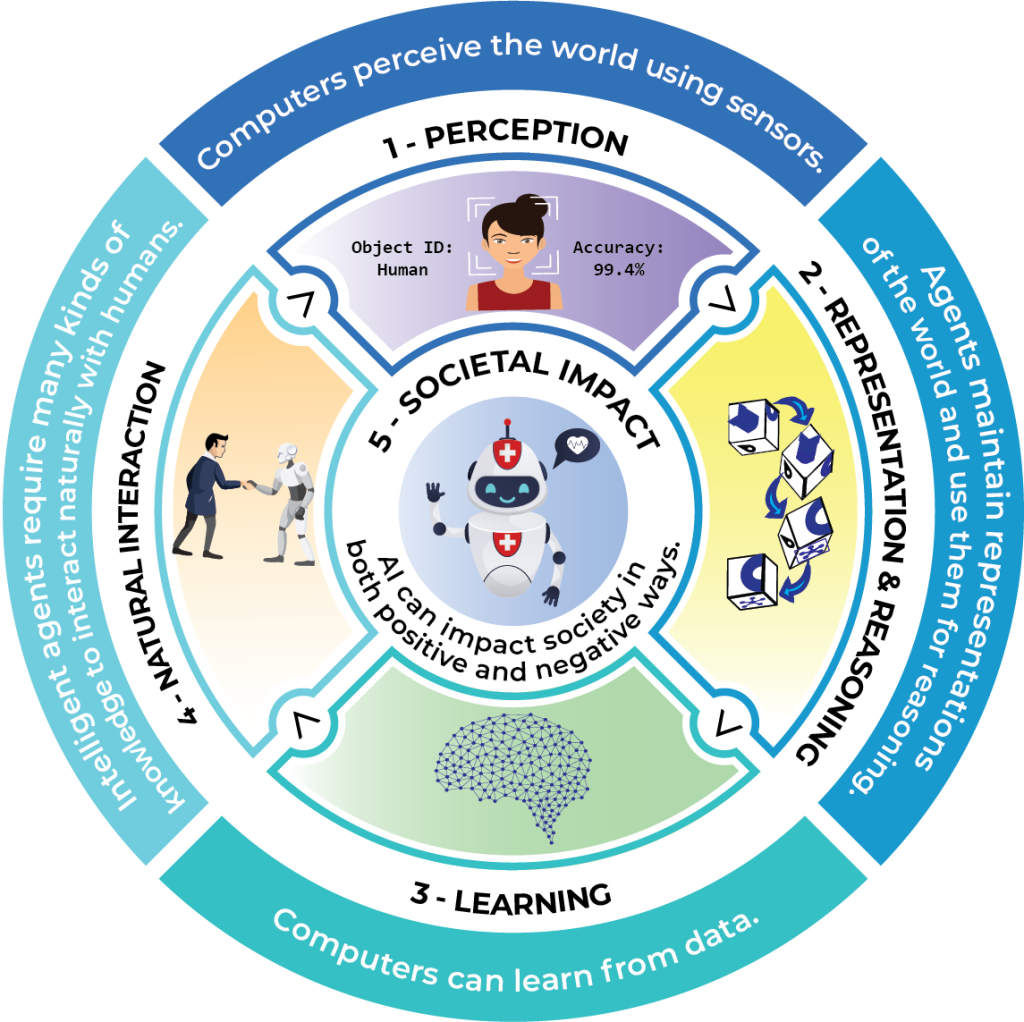Christina Gardner-McCune, Ph.D., an associate professor in the Department of Computer & Information Science & Engineering at the University of Florida, is working on a project to develop an artificial intelligence (AI) curriculum for grades K-12. Dr. Gardner-McCune is co-chair of the AI for K-12 Initiative (AI4K12), which was established by the Association for the Advancement of Artificial Intelligence and the Computer Science Teachers Association to determine what students in each grade should know about artificial intelligence, machine learning, and robotics.
 The research was recently featured in the National Science Foundation-funded 2020 STEM for All Video Showcase, which was online May 5–12. The video, “Sparking AI Curiosity With the AI4K12 Initiative,” looks at how to engage K-12 students by introducing them to Five Big Ideas in AI.
The research was recently featured in the National Science Foundation-funded 2020 STEM for All Video Showcase, which was online May 5–12. The video, “Sparking AI Curiosity With the AI4K12 Initiative,” looks at how to engage K-12 students by introducing them to Five Big Ideas in AI.
- Perception. How do computers see and make sense of the world outside? What happens when a device—such as a cell phone—uses facial recognition? Or when another tool uses object-recognition?
- Representation and reasoning. How does AI “think?” How does it make sense of problems? Students should come away with an understanding of how AI creates representations of the world.
- Learning. How do computers learn? They learn from receiving massive amounts of data, and so what they learn depends on what’s in the data, and what decisions a designer or developer is actually asking the computer to make. This topic can lead to conversations around bias and ethics, Dr. Gardner-McCune said. How is data being collected, and should it be collected at all? Who does it benefit or disadvantage?
- Natural interactions. How do humans design AI so they can interact with it? How can concepts that humans understand—about social distance and motion, for instance—be incorporated with AI tools and platforms?
- Social impacts and ethics. This focuses on helping students understand the ethical and societal implications of AI, and the implications of how those systems are designed. It also looks at questions about how data is used and collected, the transparency of AI systems, and “how do we work with AI as an assistive technology?” Dr. Gardner-McCune said.
Dr. Gardner-McCune said these ideas have been reviewed and accepted by the AAAI Community. She is working with David Touretzky, Ph.D., a research professor in the Computer Science Department at Carnegie Mellon University and the project’s principal investigator; Fred Martin, Ph.D., a professor at University of Massachusetts, Lowell; and Deborah Seehorn, Computer Science Teachers Association interim executive director. The team has been working on this project for two years.
“We have released early versions of the guidelines in talks and publications to help people get started in their AI curriculum efforts,” Dr. Gardner-McCune said. “Organizations such as ISTE, Microsoft, ReadyAI, and Code.org have begun developing K-12 AI content, and they are aligning it to the Five Big Ideas.”

Researchers on the team are hoping that teachers become aware of the AI4K-12 initiative so they can incorporate the Five Big Ideas and resources into their curriculums.
“AI is being used everywhere,” Dr. Gardner-McCune said. “It is imperative that students begin learning about it as young as possible. In the past two years, we’ve seen more and more teachers and curriculum providers begin to introduce AI to K-12 students. We want people to think of AI4K12.org as the official place to find information about K-12 AI Education.”
More information can be found on the AI4K12 website.
Allison Logan
Marketing & Communications Specialist
Herbert Wertheim College of Engineering